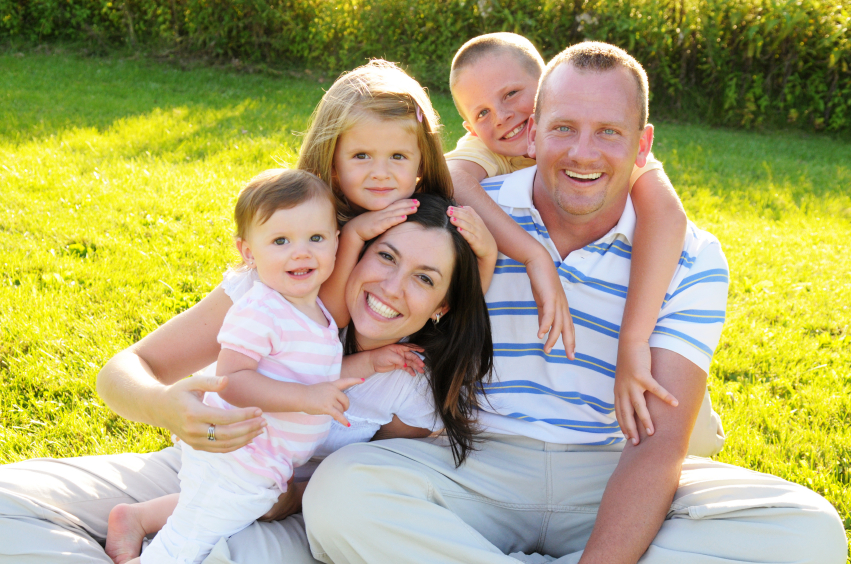
As a young mother I was told that the only parenting manual I needed was the Book of Mormon. I think I was in the middle of potty training at the time and I remember thinking…Really? The Book of Mormon is going to help me with this?
The council, however, has stayed with me, and opened my eyes to the many times we see and learn from parents in the scriptures, especially the Book of Mormon.
 King Benjamin, a leader of the Nephite people living in Zarahemla, is often remembered as a great King who lived what he preached. We know that he fought, worked, and served alongside his people. And they loved the example he set. In my recent study of the first chapters of Mosiah, I found that his leadership as a King is also a great formula for being leaders in our own homes.
King Benjamin, a leader of the Nephite people living in Zarahemla, is often remembered as a great King who lived what he preached. We know that he fought, worked, and served alongside his people. And they loved the example he set. In my recent study of the first chapters of Mosiah, I found that his leadership as a King is also a great formula for being leaders in our own homes.
At this time, in Nephite history, war has been constant between the Nephites and Lamanites. The violence is so bad that King Benjamin’s father, Mosiah, is commanded by the Lord to leave the Land of Nephi, and travel to Zarahemla. We know, from the end of Words of Mormon, that the Lamanites follow them to Zarahemla to continue the bloody war.
Knowing this, it is impressive to me that the first verse of Mosiah says, “And now there was no more contention in all the land of Zarahemla, among all the people who belonged to King Benjamin, so that King Benjamin had continual peace all the remainder of his days.”
No more contention! This was a miracle for the Nephite people who had known war for so long. While raising four children, I think it would be a miracle in my own home as well. So how was it achieved?
The end of Words of Mormon summarizes the period of time between the small plates of Nephi (the book of Omni) and the beginning of the large plates of Nephi (the book of Mosiah). Here we learn that King Benjamin wielded the sword of Laban to fight with his people against the Lamanites. That with the strength of the Lord they were able to drive the Lamanites out of Zarahemla, as well as out of the lands of their inheritances (the Land of Nephi). (v. 13-14)
So King Benjamin physically protected his people and was able to end the war with the Lamanites.
Next, we learn that King Benjamin had no tolerance for false Christs or false teachers of any kind. They were “punished according to their crimes” meaning he used the established law to fairly, but swiftly, stop these influences from infiltrating his people. King Benjamin protected his people spiritually, controlling what worldly and false influences affected their lives. (v. 15-16)
Finally we are told that King Benjamin was a “holy man” and righteous. That during his reign many holy men walked, and taught, in Zarahemla. That they spoke “the word of God with power and with authority; and they did use much sharpness because of the stiffneckedness of the people.”
Not only did King Benjamin eliminate bad influences among his people, he increased the good, and spiritually uplifting, influences. The people still struggled with pride and selfishness, but he, as their leader, continually taught, monitored and battled against that “natural man. “Wherefore, with the help of these, King Benjamin, by laboring with all the might of his body and the faculty of his whole soul, and also the prophets, did once more establish peace in the land.” (v. 18)
We, as parents, are the leaders of our own homes. We are the gatekeepers that decide what is allowed in, and what we will have no tolerance for. We have the responsibility, and power, to protect our families physically, spiritually, and to make sure that only good and righteous influences enter our homes.
I’m finding in my own home that this takes not only constant effort, but large amounts of courage. My children are technologically savvy and TV happy. Not only must I be aware of what they are watching, and seeing, but I need to be brave enough to speak up when I see something that whispers of false teaching or worldly influence. Sometimes my children will shrug and switch the channel or close the you-tube video without much fight, but often my instruction will lead to angry or confused questions. Questions that are hard to answer, and angry emotions, that are difficult to deal with.
During those moments I hope to be like King Benjamin, who had a far reaching perspective. He was king during a difficult time, yet he didn’t just endure, he worked hard to make changes, and to better the lives of his people. He knew that with hard work, by applying correct principles, and with the support of the Lord, he could establish peace among the Nephites.
I pray that during difficult parenting moments, I too can retain this perspective and gain the blessing of peace and righteousness in my own home. That, as Lehi promised his sons, “O that thou hadst hearkened to my commandments—then had thy peace been as a river, and thy righteousness as the waves of the sea.” (1 Ne. 20:18)